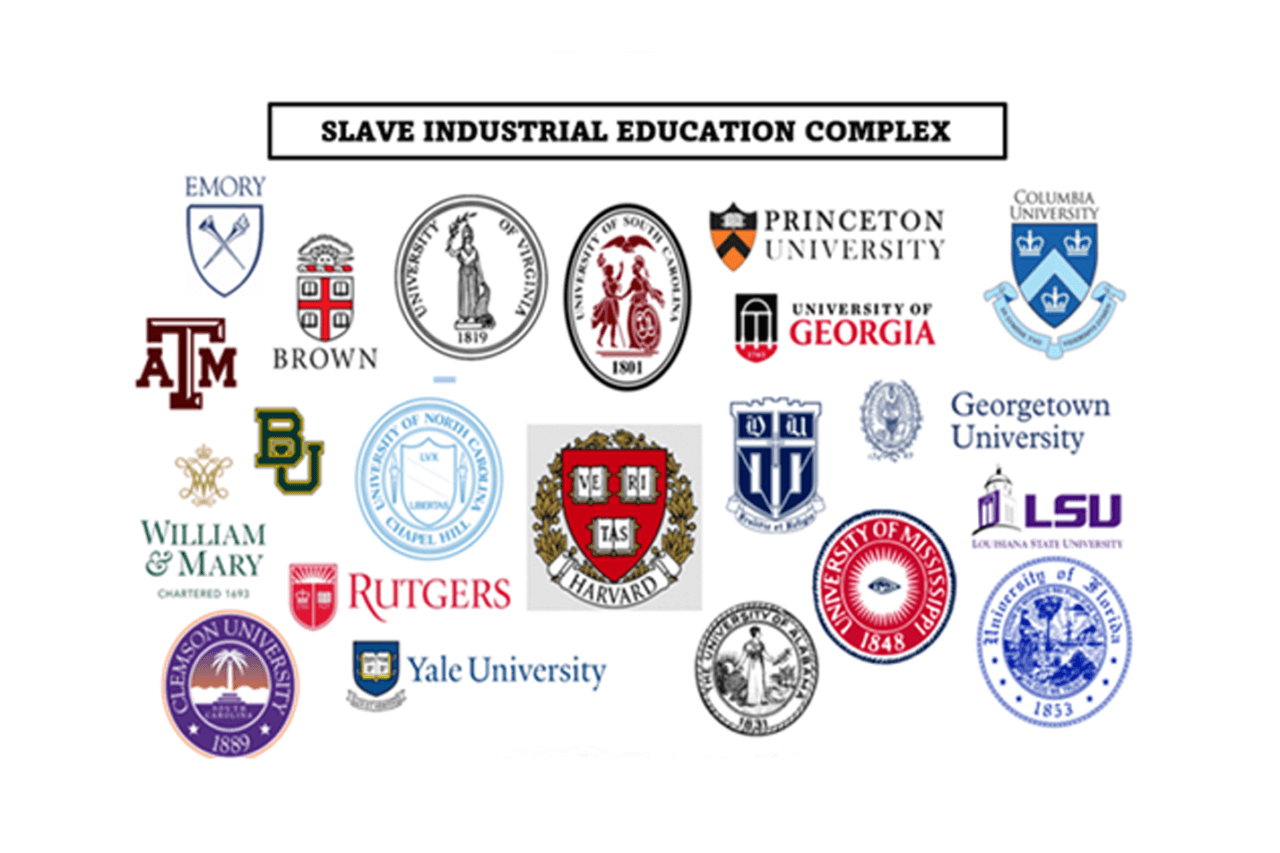Slave Industrial Educational Complex Spotlight: Ivy League

Slave Industrial Educational Complex
SPOTLIGHT: IVY LEAGUE
The Ivy League, a renowned group of eight prestigious universities in the United States, has long held a distinguished status in higher education. However, a closer examination of their historical connections reveals their deep entanglement with the Slave Industrial Education Complex—a term used to highlight the intricate relationship between higher education and the institution of slavery.
During the colonial era, several Ivy League institutions, including Harvard, Yale, and Princeton, were founded with direct ties to the slave economy. These universities flourished with financial contributions derived from the profits of slave labor and the wealth accumulated through slave plantations. The very foundations of these institutions were built upon the economic exploitation of enslaved people.
Notably, Harvard University, the oldest Ivy League institution, benefited from the financial support of slave owners and traders. Isaac Royall Jr., a wealthy slaveholder, played a significant role in funding Harvard Law School through his estate, which was amassed from the labor of enslaved people. Yale university, founded in 1701 received significant support from slave traders and owners, including Elihu Yale, who made his fortune in the East India Company’s slave trade. This stark historical connection reveals the deep-seated ties between the Ivy League and the wealth generated by the slave trade.
Beyond financial ties to slavery, the Ivy League universities perpetuated racial inequality through exclusionary admissions practices. For centuries, these institutions enforced policies that restricted or outright denied the admission of African Americans and other marginalized groups. These discriminatory practices denied opportunities for higher education and reinforced the systemic oppression rooted in slavery.
Moreover, the curriculum taught at Ivy League institutions often neglected or distorted the history and contributions of African Americans. The education provided at these universities centered on a Eurocentric worldview, marginalizing the experiences and achievements of people of African descent. This erasure of African American history perpetuated the racial hierarchy that underpinned the slave system and contributed to the marginalization of Black communities. The legacies of the Slave Industrial Education Complex persist within the Ivy League.
Efforts to address systemic racism and promote diversity and inclusion are ongoing challenges that these institutions must tackle. It requires not only acknowledging the historical injustices but also actively working towards systemic change to dismantle the barriers that perpetuate racial inequality within higher education.
As we shine a spotlight on the Ivy League’s historical connections to the Slave Industrial Education Complex, we must continue to push for meaningful change and accountability. It is through these collective efforts that we can work towards a more inclusive and equitable educational landscape that uplifts and empowers all individuals, regardless of their racial or ethnic backgrounds.
By fully acknowledging their historical connections to slavery and actively engaging in efforts to rectify the past, the Ivy League has the potential to lead the way in reimagining higher education as a transformative force for justice and equality. This includes increasing access to education for underrepresented communities, promoting diverse perspectives in research and scholarship, and fostering a campus environment that values and respects the experiences of all students.




